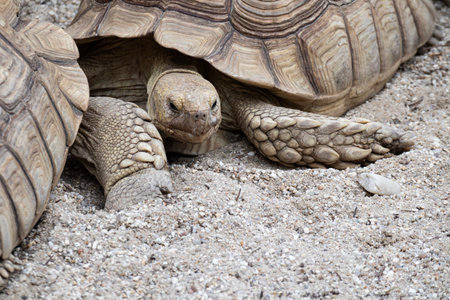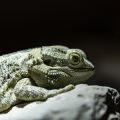Introduction to Reptile Keeping in the UK
Reptiles have steadily charmed their way into British homes, becoming an increasingly popular choice for those seeking a unique and fascinating pet. From the gentle leopard gecko to the stately corn snake, reptiles offer a distinct alternative to traditional furry companions. Their mesmerising behaviours, striking appearances, and relatively quiet presence suit a variety of lifestyles—especially for those who appreciate tranquillity and understated beauty in their living spaces. However, embracing reptile keeping is not just about admiring their exotic allure; it comes with its own set of joys and serious responsibilities.
Before welcoming a cold-blooded companion into your home, it’s essential to understand both the delights and duties involved. Reptiles require specialised habitats, careful temperature control, and particular diets to thrive. Moreover, there are legal considerations in the UK regarding ownership and welfare standards that every prospective keeper must observe. The following table provides a quick snapshot of what you can expect when considering a reptile as a pet:
| Aspect | Details |
|---|---|
| Popular Species in the UK | Leopard Geckos, Corn Snakes, Bearded Dragons, Royal Pythons |
| Main Attractions | Low noise, minimal odour, fascinating behaviour, stunning colours |
| Key Responsibilities | Habitat setup, regulated heating & lighting, dietary care, regular cleaning |
| Legal Considerations | Animal Welfare Act 2006 compliance; some species may require special licences |
Caring for reptiles can be incredibly rewarding for those willing to invest time in research and preparation. Their presence adds an exotic elegance to your living environment—a true celebration of life’s diversity within the comfort of your home. As interest continues to rise across Britain, understanding the essentials of responsible reptile care ensures both you and your scaly friend enjoy a harmonious relationship.
2. Choosing the Right Reptile for Your Home
Welcoming a reptile into your UK home is an exciting journey that begins with selecting a species perfectly suited to your lifestyle and living space. With so many fascinating reptiles available, from charming geckos to majestic pythons, making an informed choice is essential for both your comfort and the well-being of your new companion.
Considerations Before Choosing
Before bringing any reptile home, it’s important to reflect on a few key factors:
- Temperament: Some reptiles are naturally docile and easy-going, while others may be shy or require more careful handling.
- Size: The adult size of your chosen reptile will impact the type of enclosure needed and the space required in your home.
- Maintenance Needs: Different species have varying requirements for temperature, humidity, diet, and cleaning routines.
- Lifespan: Many reptiles live for decades, so it’s wise to consider your long-term commitment.
Popular Reptiles for UK Homes
The table below provides a quick comparison of popular pet reptiles in the UK, tailored to different household needs and experience levels:
| Species | Temperament | Adult Size | Maintenance Level | Best For |
|---|---|---|---|---|
| Corn Snake | Gentle, easy to handle | 120-150 cm | Low-Medium | First-time keepers, families |
| Leopard Gecko | Docile, interactive | 20-25 cm | Low | Small spaces, beginners |
| Crested Gecko | Nocturnal, calm | 20-25 cm | Low-Medium | Apartments, gentle handlers |
| Bearded Dragon | Sociable, engaging | 40-60 cm | Medium-High | Larger homes, active owners |
| Royal Python (Ball Python) | Tolerant, shy at times | 90-120 cm | Medium | Diligent carers, experienced keepers |
| Tortoise (Hermanns or Horsefield) | Mellow, slow-moving | 15-25 cm (shell length) | Medium-High (specialist diet) | Patiowith garden access, patient owners |
The Importance of Research and Preparation
A little research goes a long way. Visiting reputable breeders or specialist shops in your local area—such as those found in London, Manchester, or Glasgow—can provide invaluable advice. Always ensure you’re sourcing reptiles ethically and legally by checking for relevant paperwork and certifications.
Your Lifestyle Matters Too!
If you travel frequently or have young children or other pets at home, these factors should weigh heavily in your decision-making process. Remember: the right reptile will not only enhance your living space but also fit seamlessly into your everyday British lifestyle.

3. Housing and Creating the Perfect Habitat
When it comes to keeping reptiles as exotic pets in the UK, providing the right housing is absolutely vital for their well-being. Unlike traditional pets, reptiles require carefully controlled environments that reflect their natural habitats, taking into account both species-specific needs and the unique challenges of the British climate.
Choosing the Right Vivarium
The vivarium is your reptile’s home, so selecting one that fits your pet’s adult size and lifestyle is essential. Glass terrariums are perfect for species needing high humidity, while wooden vivariums with glass fronts offer superior insulation—a real boon during chilly British winters.
| Vivarium Type | Best For | Pros | Cons |
|---|---|---|---|
| Glass Terrarium | Tropical reptiles (e.g., geckos, anoles) | Excellent visibility, easy humidity control | Poor heat retention |
| Wooden Vivarium | Larger reptiles (e.g., bearded dragons, snakes) | Better insulation, customisable sizes | Can warp with high humidity |
| Plastic Enclosure | Smaller species or temporary housing | Lightweight, easy to clean | Limited visibility and airflow |
Adapting to the British Climate
The UK’s cooler and often damp weather means you’ll need to pay special attention to temperature and humidity within your reptile’s enclosure. Invest in reliable thermostats and hygrometers to ensure a stable microclimate year-round. In winter, supplementary heating—such as ceramic heat emitters or under-tank heaters—may be necessary to maintain tropical temperatures.
Creating a Naturalistic Environment
Mimicking your reptile’s native habitat not only keeps them healthy but also encourages natural behaviours. Research your chosen species’ origins: desert dwellers like leopard geckos thrive with sandy substrates and rocky hides, while rainforest natives such as chameleons need lush foliage and high humidity. Incorporate suitable décor—branches for climbing, caves for hiding, and water features for bathing—to make their home both functional and beautiful.
Essential Setup Checklist for UK Reptile Owners:
- Select a vivarium sized for your reptile’s adult dimensions.
- Install appropriate heating and lighting systems.
- Add thermometers and hygrometers to monitor environmental conditions.
- Use substrates and decorations that suit your pet’s natural habitat.
- Ensure secure ventilation to prevent mould while maintaining warmth.
- Create hiding spots to help reduce stress.
- Regularly clean and check all equipment for safety.
By thoughtfully selecting housing materials, staying mindful of Britain’s ever-changing weather, and recreating a slice of your reptile’s natural world at home, you’ll give your scaly companion every opportunity to thrive in style.
4. Nutrition and Health Essentials
Ensuring your reptile thrives in your UK home starts with a carefully planned diet, mindful sourcing of quality food, and a commitment to their overall health. British reptile owners have access to a variety of specialist suppliers and must understand the nutritional requirements unique to each species.
Feeding Routines for Popular Reptiles
Each reptile species has its own dietary needs and preferred feeding schedules. For instance, leopard geckos typically require live insects every other day, while bearded dragons benefit from a mix of fresh greens and protein sources. Snakes may only need feeding once a week with defrosted rodents. Consistency is key—try to feed your pets at the same time each day for routine and well-being.
Sample Feeding Schedule
| Species | Main Diet | Feeding Frequency |
|---|---|---|
| Leopard Gecko | Crickets, mealworms, waxworms | Every other day |
| Bearded Dragon | Leafy greens, vegetables, insects | Daily (juveniles), Every other day (adults) |
| Corn Snake | Mice (defrosted) | Once a week |
| Crested Gecko | Commercial gecko diet, fruit puree, occasional insects | Every other day |
Sourcing Quality Food in the UK
The UK boasts reputable pet shops and online retailers specialising in live and frozen food. Look for suppliers registered with animal welfare standards such as the Pet Industry Federation or those recommended by reptile clubs. Local markets can provide fresh greens and vegetables for omnivorous species. Always prioritise organic produce where possible, thoroughly washing all items before serving.
Popular UK Food Suppliers for Reptiles
- Livefoods Direct: Nationwide delivery of live insects and worms.
- The Spider Shop: Trusted source for both invertebrates and frozen foods.
- Swell Reptiles: Wide selection of commercial reptile foods and supplements.
- Your local independent pet shop: Personalised advice and often locally sourced produce.
Vitamin and Mineral Supplementation
Brittle bones, metabolic bone disease, or dull skin can arise from vitamin deficiencies—especially Vitamin D3 and calcium. Most reptiles benefit from a dusting of calcium powder on live food 2-3 times per week, alongside multivitamin supplements weekly. UVB lighting is essential for synthesising Vitamin D3 but always check your specific species’ needs as some nocturnal reptiles have different requirements.
Essential Supplements Chart
| Supplement Type | Main Benefit | Recommended Frequency |
|---|---|---|
| Calcium Powder (with D3) | Bones & shell health; prevents MBD* | 2-3 times/week (on food) |
| Multivitamin Powder | General health & vitality support | Once/week (on food) |
| Dusted Insects/Prey Items | Nutrient boost for insectivores/carnivores | Per feeding session as required |
| UVB Lighting** | Synthesises Vitamin D3 naturally | 10–12 hours daily (as per species) |
*MBD: Metabolic Bone Disease
**Replace bulbs every 6–12 months as per manufacturer’s instructions.
A balanced approach to nutrition not only keeps your reptile healthy but also enhances their vibrancy and natural behaviours—a true joy for any British keeper cherishing exotic life at home.
5. Legalities and Welfare in the UK
Welcoming a reptile into your British home is an exciting adventure, but it’s essential to be fully aware of the legal framework and welfare obligations that come with exotic pet ownership. The UK has clear guidelines and regulations to ensure reptiles are kept responsibly and humanely, reflecting the nation’s commitment to animal welfare and public safety.
Understanding UK Regulations for Reptile Ownership
The UK enforces strict rules regarding the keeping, breeding, and selling of exotic pets, including reptiles. Prospective owners must acquaint themselves with national and local legislation to avoid unintentional breaches. Here’s a concise summary of what you need to consider:
| Requirement | Details |
|---|---|
| Licences | Certain species require a licence under the Dangerous Wild Animals Act 1976. Check with your local council before acquiring any reptile, especially if it’s venomous or considered high-risk. |
| Animal Welfare Act 2006 | This act mandates that pet owners meet five key welfare needs: a suitable environment, proper diet, ability to exhibit normal behaviour patterns, housed with or apart from other animals as appropriate, and protection from pain, injury, suffering and disease. |
| Local Authority By-Laws | Some councils may have additional restrictions on keeping exotic pets. Always consult your local authority for specific regulations in your area. |
| Sale and Importation Laws | The sale, importation, or transfer of certain reptiles may be controlled under CITES (Convention on International Trade in Endangered Species). Always request valid documentation when purchasing. |
Your Responsibilities as a Reptile Keeper
Beyond legal compliance, ethical stewardship is paramount. The Animal Welfare Act places a duty of care upon all pet keepers, ensuring your reptile lives a healthy, enriched life. Regular veterinary checks, appropriate housing conditions (such as temperature gradients and UVB lighting), enrichment activities, and species-specific diets are not just best practice—they’re legal requirements.
Summary Checklist for Responsible Ownership
- Research your chosen species’ needs thoroughly before purchase.
- Confirm if a licence is necessary for your reptile.
- Create an environment that meets all welfare standards outlined by UK law.
- Source your pet ethically—never from illegal or unregulated sellers.
- Keep up-to-date records and documentation for each reptile in your care.
- Maintain regular vet visits with an exotics specialist.
The Takeaway: Peace of Mind through Proper Practice
Navigating the legalities of reptile ownership might seem daunting at first, but following these guidelines ensures peace of mind for you—and a happy, healthy habitat for your new scaly companion. With careful preparation and commitment to welfare standards, keeping reptiles in the UK can be both fulfilling and fully compliant with the nation’s proud animal welfare tradition.
6. Daily Care and Enrichment Tips
Bringing a reptile into your British home is both a delight and a responsibility. Routine care is essential for keeping your scaly friend thriving. Below, you’ll find practical guidance on daily maintenance, effective cleaning strategies, and creative enrichment activities to ensure your reptile remains active and content.
Routine Maintenance Essentials
Consistency is key in the world of reptile care. Set aside time each day for the following tasks:
| Task | Frequency | Details |
|---|---|---|
| Feeding | Daily/As Required | Offer species-appropriate food; remove uneaten items promptly to prevent spoilage. |
| Water Change | Daily | Refresh water bowls with clean, dechlorinated tap water—vital for hydration and hygiene. |
| Temperature & Humidity Check | Daily | Monitor with reliable UK-sourced thermometers and hygrometers; adjust as needed for seasonal shifts. |
Clever Cleaning Solutions
A tidy habitat is crucial for your reptile’s wellbeing. In Britain’s often damp climate, staying on top of cleanliness helps fend off mould and bacteria. Spot-clean faeces and shed skin daily using paper towels or dedicated reptile-safe wipes. For a more thorough clean, set a weekly schedule for replacing substrate and scrubbing surfaces with pet-safe disinfectant—always rinse thoroughly before returning your reptile to its home.
Cleaning Checklist at a Glance:
- Spot-clean messes every day.
- Replace soiled bedding/substrate weekly.
- Sterilise hides, rocks, and décor fortnightly.
Enrichment Activities to Keep Reptiles Engaged
Much like ourselves, reptiles need mental stimulation to prevent boredom, which can lead to lethargy or stress-related behaviours. Here are some enrichment ideas tailored for the UK’s home environments:
- Add natural branches from safe British trees (e.g., oak or willow) for climbing and exploration—ensure they’re pesticide-free.
- Create hiding spots using terracotta pots or cork bark sourced from reputable UK pet shops.
- Rotate enclosure décor every few weeks to introduce novelty without causing distress.
- Offer live food challenges (for insectivores) such as placing crickets in feeding puzzles or amongst foliage.
Tip:
If you’re feeling creative, make a “reptile garden” indoors using edible plants such as dandelion greens (for herbivorous species) or non-toxic succulents for arid setups. This brings a touch of British countryside charm into your living space!
7. Connecting with the UK Reptile Community
Becoming a responsible reptile keeper in the UK isn’t just about caring for your exotic pets—it’s also about joining a vibrant and supportive community. Whether you’re seeking advice, looking to expand your collection, or simply wanting to share your passion, connecting with fellow enthusiasts can enrich your experience enormously. Here’s how you can get involved across Britain:
Ways to Find Local Reptile Groups
Local reptile societies and clubs are dotted throughout the country, offering regular meetings, workshops, and outings. These groups are invaluable for sharing tips, learning about new species, and building friendships with like-minded keepers.
| Region | Popular Groups | Contact/Website |
|---|---|---|
| London & South East | London Reptile Group | londonreptilegroup.org.uk |
| Midlands | Birmingham Herpetological Society | birminghamherp.co.uk |
| North West | Manchester Reptile Club | manchesterreptileclub.com |
| Scotland | Scottish Reptile & Amphibian Group (SRAG) | srag.co.uk |
Attending Events & Expos
The UK hosts numerous reptile expos and fairs annually—from the Doncaster Reptile Show to local meet-ups at garden centres. These gatherings are fantastic for meeting breeders, discovering the latest husbandry equipment, and attending educational talks by experts. Always check event listings on reputable forums or club websites before attending.
Sourcing Reputable Breeders and Specialist Vets
Finding ethical breeders and experienced exotic vets is crucial for maintaining the health of your reptiles. Many local groups maintain lists of trusted contacts; alternatively, national associations such as The Federation of British Herpetologists offer directories of breeders who follow best practice guidelines.
| Service Needed | Where to Look | Notes |
|---|---|---|
| Reputable Breeders | Club recommendations, FBH directory, Expo stands | Avoid impulse buys at non-specialist shops; ask for breeding history. |
| Specialist Vets | BVA Find-a-Vet tool, Local group suggestions, RCVS register | Ensure vet has experience with your pet’s species. |
| Community Support & Advice | Online forums (The Reptilian UK), Facebook groups, Club meetings | Always cross-reference advice and follow up with professionals if unsure. |
A Final Thought on Community Spirit
The UK reptile community is welcoming and diverse—from families keeping corn snakes in quaint cottages to city-dwellers raising geckos in stylish flats. By connecting with others, not only will you receive guidance tailored to British conditions and regulations, but you’ll help foster a culture of responsible exotic pet ownership for years to come.


